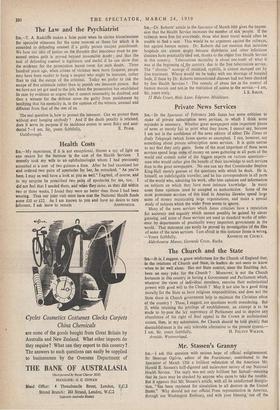Formal Spring : French Renaissance Poems. With Translations by R.
N. Currey. (Oxford University Press. ios. 6d.) THE chief distinction of this bilingual volume lies not only in the excellence of Mr. Currey's translation but in its lack of uniformity, too often the weakness of an anthology translated by one hand. Mr. Currey's obvious prowess as a poet is not here displayed at the expense of his subject, for he is both content and able to vary his style according to the several poetic temperaments he interprets. In his introduction to twelve French poets of the late Middle Ages and the Renaissance, this unobtrusive approach is perhaps offset by a somewhat apologetic manner ; and the reader may feel that Mr. Currey is unduly uneasy about the " escapism " of certain poets who, as his own translations make clear, escaped so successfully. Charles d'Orl6ans, Villon and Ronsard had little moral " message " to offer, unless it were implicit in their preoccupation with beauty and form, their conscious exaltation of a questionable status quo. For them, the essence resided inside, not without, the appearance of things. It is true, as Mr. Currey writes, that " the stiff figures moved into graceful life, but against a background of famine, squalor, superstition, cruelty and disease." Today, against a back- ground of physical welfare, spiritual uncertainty; cruelty and hygiene, their movements delight no less. The antithetical qualities of the poems of this period are well expressed by Mr. Currey's translations —the toughness and melody of Villon's Ballade des Pendus, the simplicity and force of du Bellay's Nouveau venu, qui cherches Rome en Rome and d'Orleans' gay pathos, where Mr. Currey is possibly at his best.






























































 Previous page
Previous page